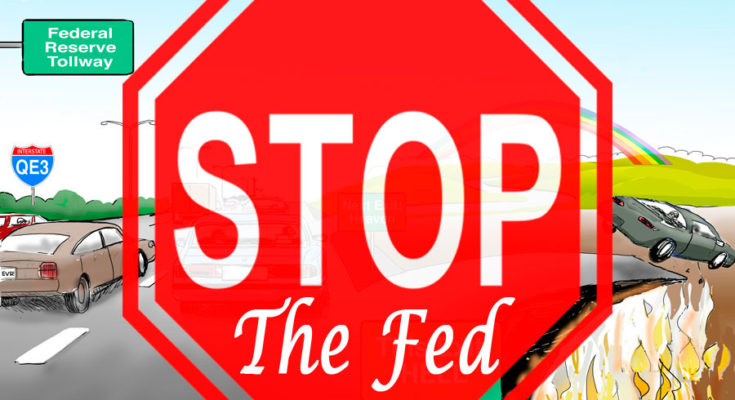We are concerned the Fed causes both economic and political stability to deteriorate. And, no, this is not about discouraging the Fed to hike rates.
This analysis is about pointing out that the road to hell may be paved with the best of intentions. For the economy to prosper, we need a re-thinking not just at the Fed, but also with some Fed critics. Let me elaborate…

What’s wrong?
Central banks have been ever more engaged in the markets. More than seven years after the onset of the financial crisis, we are still arguing whether we can afford interest rates above 0%. Asset prices have been inflated, benefiting those with assets, but doing little for the working man and woman. Governments from the U.S. to Europe and Japan appear to ever more rely on central banks to provide them with cheap money to keep their deficits sustainable (at zero percent interest, at least in theory, any deficit appears sustainable!).
Generally, when asset prices are distorted, we are all but certain to get capital misallocation. This isn’t simply bad for investment managers that chase the Fed rather than invest on fundamentals- it can also be bad for real investments, as it is difficult to discern what real projects are worth investing in.
The easy money can also be bad for the social fabric of nations. Without rambling too much about the socio-economic implications of extraordinarily low interest rates, in our assessment, the rise of the Occupy Wall Street movement; the rise of the Tea Party; the success of Abenomics; as well the success of various populist parties in Europe are all a byproduct of monetary policy that’s gone astray. Central banks may not be solely responsible for all the ills of the world, but they have played and continue to play a catalyst.
Many may be thankful for the Fed to have “saved the day†in 2008, but the Band Aid approach imposes a heavy toll.
The Fed must get out of politics
The Fed ought to focus on monetary, not fiscal policy. That is, the Fed may set interest rates, but shouldn’t be in charge of who gets a loan. The Bernanke-Fed crossed the Rubicon when it first started buying Mortgage-Backed Securities (MBS). By choosing to favor the housing market over other sectors of the economy, the Fed started to meddle on fiscal turf. Fiscal policy is a messy, well politicized affair. In our humble opinion, anything pertaining to fiscal policy shall be left to elected politicians. Once central bankers start veering away from monetary policy, they are asking for trouble. Because politicians want to have a say in how credit is allocated (through tax and regulatory policy), they now want to have a say over what the Fed is up to. It’s no surprise to us that, as a result, there’s been a movement to “audit the Fed.â€

